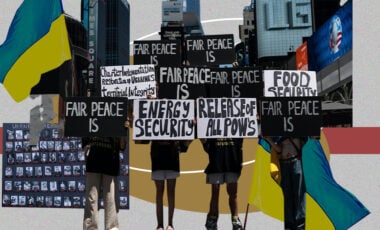Two years of captivity of Mariupol defenders: what can be done?
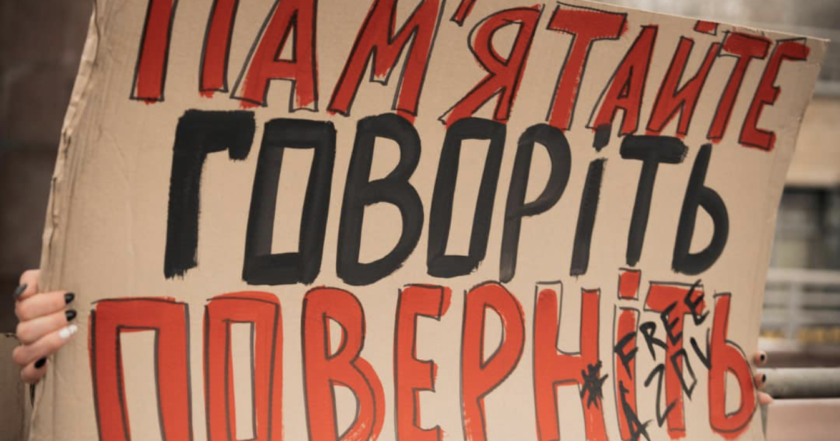
Фото: Оlenivka Сommunity
On May 16, 2022, the process of capturing the defenders, who bravely and heroically defended Mariupol, surrounded by Russian troops, began. On this day, the commander of the Azov brigade, Denys Prokopenko, announced their surrender in a video message.
The defenders of Mariupol carried out the order of the Ukrainian authorities. Despite all the difficulties, they pulled the overwhelming enemy forces back for 82 days, allowing the Ukrainian army to regroup, train more personnel, and receive a large number of weapons from partner countries.
"No weapon will work without professionally trained soldiers, making them the army's most valuable element. To save lives, the entire Mariupol garrison implements the approved decision of the higher military command and hopes for the support of the Ukrainian people," Prokopenko said in his address.
On this day, the families of Ukrainian soldiers were waiting for information from the state authorities of Ukraine to understand whether it was captivity or evacuation with the help of third countries. The President of Ukraine, Volodymyr Zelensky, emphasized that the work continues to bring the boys home, which requires delicacy and time.
At that time, no one could imagine they would be in Russian prisons for two years. The only question that arises is, "How many more?"
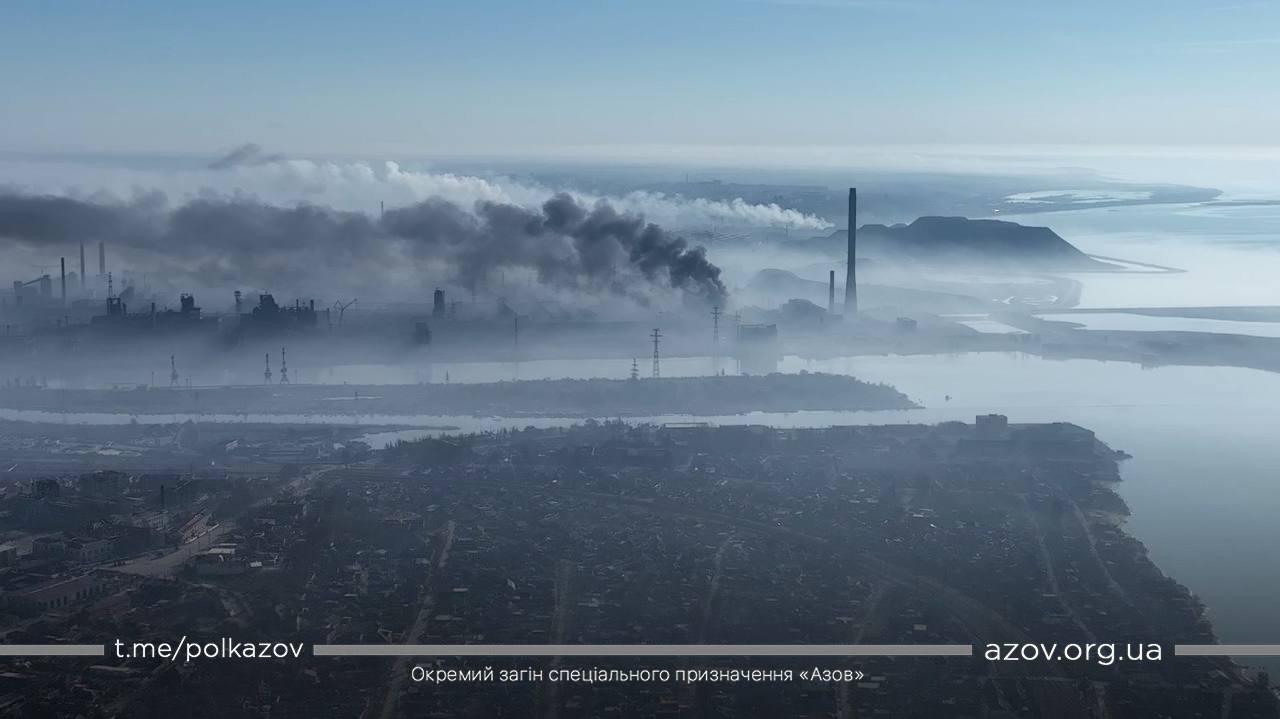
Photo: Telegram channel of the Azov brigade
The involvement of third countries and international organizations in the process of the withdrawal of Ukrainian soldiers from the Azovstal plant in Mariupol
According to Zelensky, leaders of Turkey, Israel, France, and Switzerland, as well as representatives of the International Committee of the Red Cross (ICRC) and the United Nations, were involved in the process of withdrawing Ukrainian soldiers from the Azovstal plant. The ICRC was supposed to be present during the defenders' exit to record their personal data, officially confirm their capture, and notify their families. However, this was not done to the full extent. As it became known later, representatives of the ICRC were not present in Mariupol on all the days of the withdrawal of Ukrainian troops from Azovstal.
Representatives of Ukraine's state bodies often call representatives of international organizations guarantors of the life and health of the defenders of Azovstal. However, ICRC and UN representatives deny this.
On the night of July 29, 2022, the Russian occupying forces committed a terrorist act against Ukrainian prisoners of war, Azovstal defenders — at least 53 prisoners were killed, and more than 130 were injured from the explosions on the territory of the Olenivka Penal Colony, where Ukrainian defenders were held.
After the terrorist attack in Olenivka, ICRC representative Oleksandr Vlasenko said in an interview that they had never guaranteed the safety of prisoners of war after they fell into the hands of the enemy, as this was beyond their capabilities.
"We informed the parties to the conflict about this in advance and clearly. Ensuring the protection of prisoners of war from any acts of violence, from intimidation, from torture, from the curiosity of the general public, and from their public presentation is the duty of the party to the conflict that holds these people. Also, care for the bodies of the dead is entrusted to the side of the conflict that has these bodies," Vlasenko explained. ICRC stated that they could not control the destinies of these people because, according to the Geneva Conventions, these responsibilities are assigned to the side of the conflict, and only the side of the conflict can effectively ensure the safety of these people. "We are acting in accordance with what we are allowed to do under international humanitarian law and as we do in all military conflicts around the world," he added.
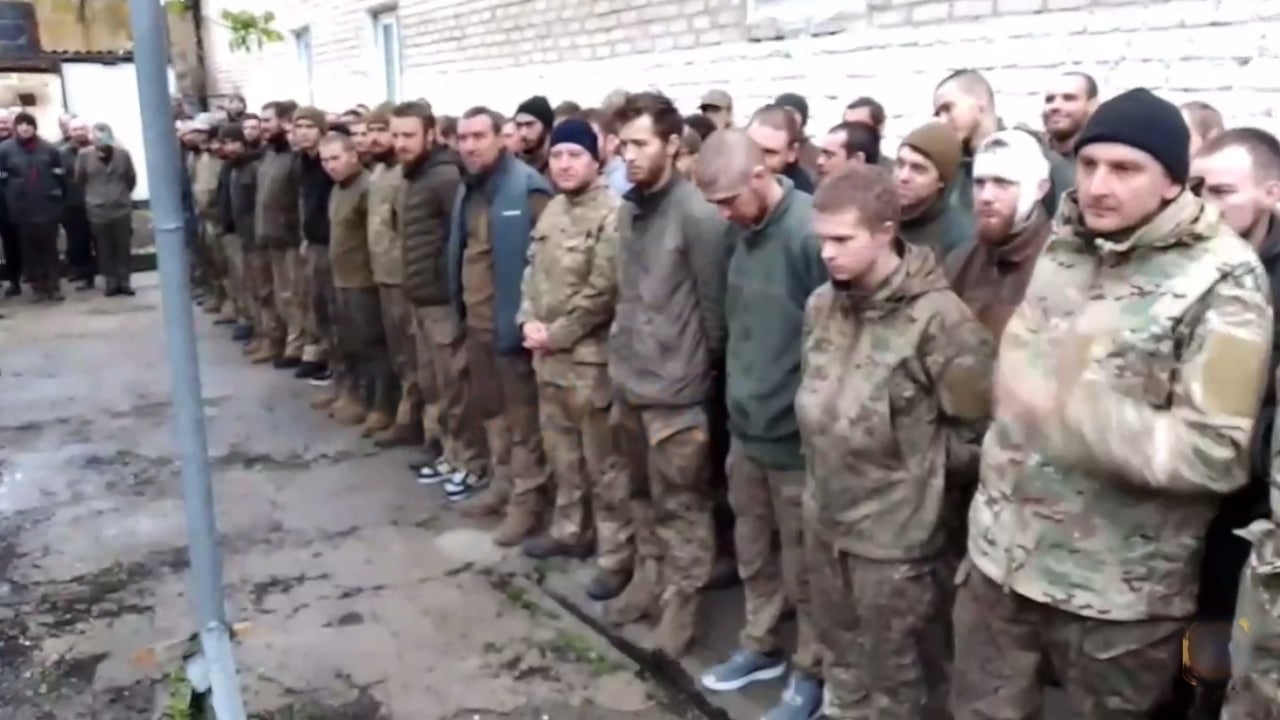
Footage from a video on Russian resources in Olenivka colony dated May 19, 2022. On this day, representatives of the ICRC visited the colony — the only time during the Azovstal defenders' captivity.
What needs to be done to save the captured soldiers
The leaders of those countries, which, according to Zelensky, agreed on the exit from Azovstal, have not yet made public statements about whether they assumed certain obligations and whether they participated in the negotiation process at all. Ukrainian NGO Olenivka Community constantly emphasizes that Ukraine should appeal to these countries with a request to save the lives of the defenders who, with their help, surrendered. The captured soldiers have been kept in inhumane conditions for two years, enduring torture and abuse by representatives of the Russian Federation.
"86 days of heroic defense, blockade, hunger, capture, terrorist attack — this is the price of freedom for most of Ukraine and its citizens, which our relatives continue to pay. We have to make sure that the cry for their salvation is once again heard as loudly as possible worldwide," said Hanna Lobova, an Olenivka Community representative.
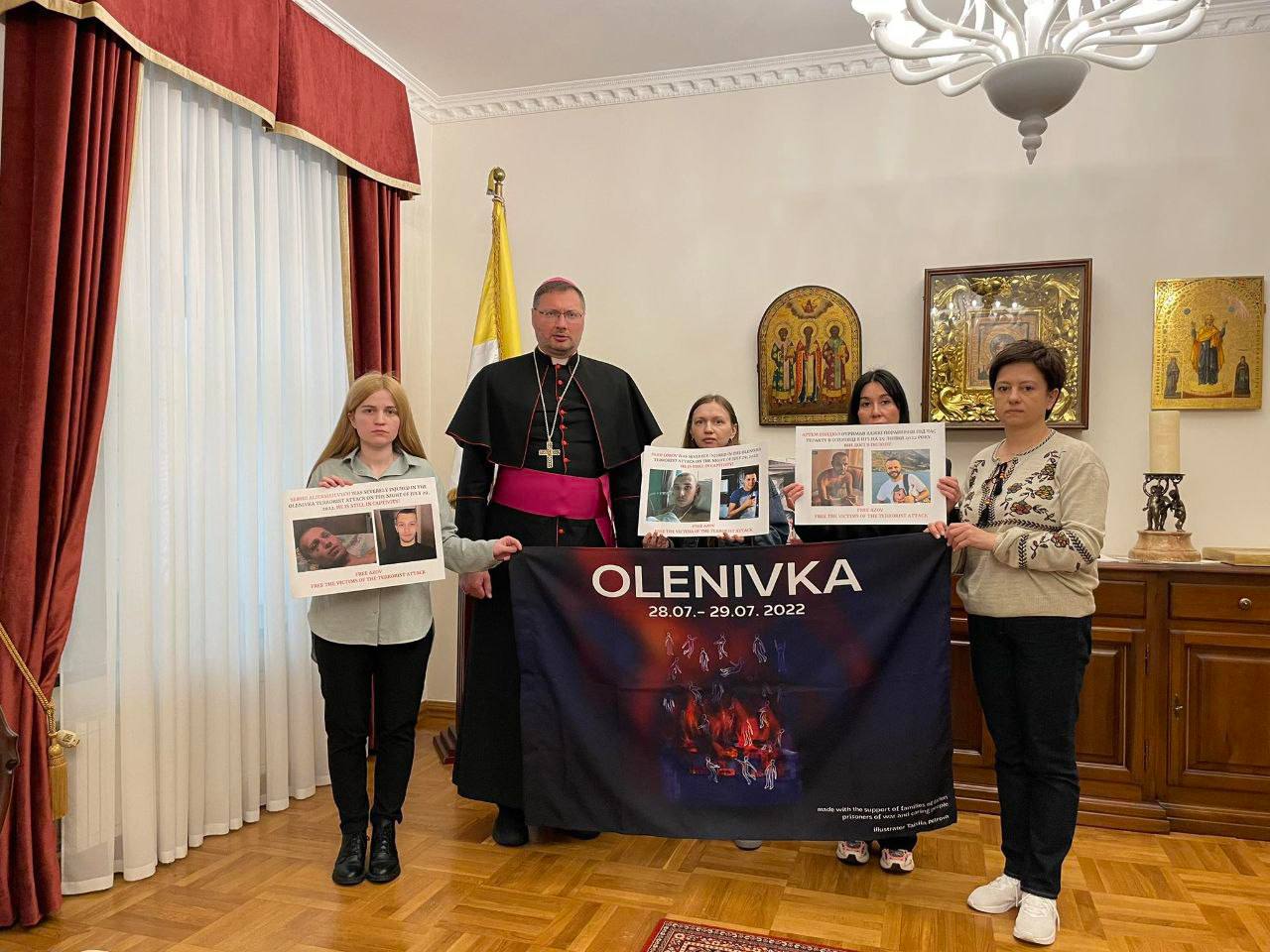
Representatives of the NGO Olenivka Community, Mariia Alekseevych, Hanna Lobova, and Anastasiia Gondyul, at a meeting with the Vatican ambassador to Ukraine
Another important question is whether the defenders of Mariupol had a choice. Could they choose to be captured by order or to remain at the plant and try to escape occupied Mariupol to the territory controlled by Ukraine?
In May 2024, the Ukrainian media outlet Focus spoke with representatives of the Azov brigade, who claimed that despite the "guarantees," most servicemen took the news negatively. Someone was thinking of staying in the tunnels for a while and then coming out in small groups. But the commander said that if someone decided to leave alone, they would frame the whole group. The defenders of Mariupol had no choice because otherwise, they would have violated the command's order, especially since the order was also given by Ukraine's military-political leadership.
Before going into "honorable captivity for three to four months," as was expected, these soldiers defended Mariupol in the most difficult conditions, almost without food, water, or medicine, under round-the-clock shelling. Many of them were already in poor physical and mental condition when they left Azovstal. Some of them will never return from captivity because they were executed in Olenivka. .
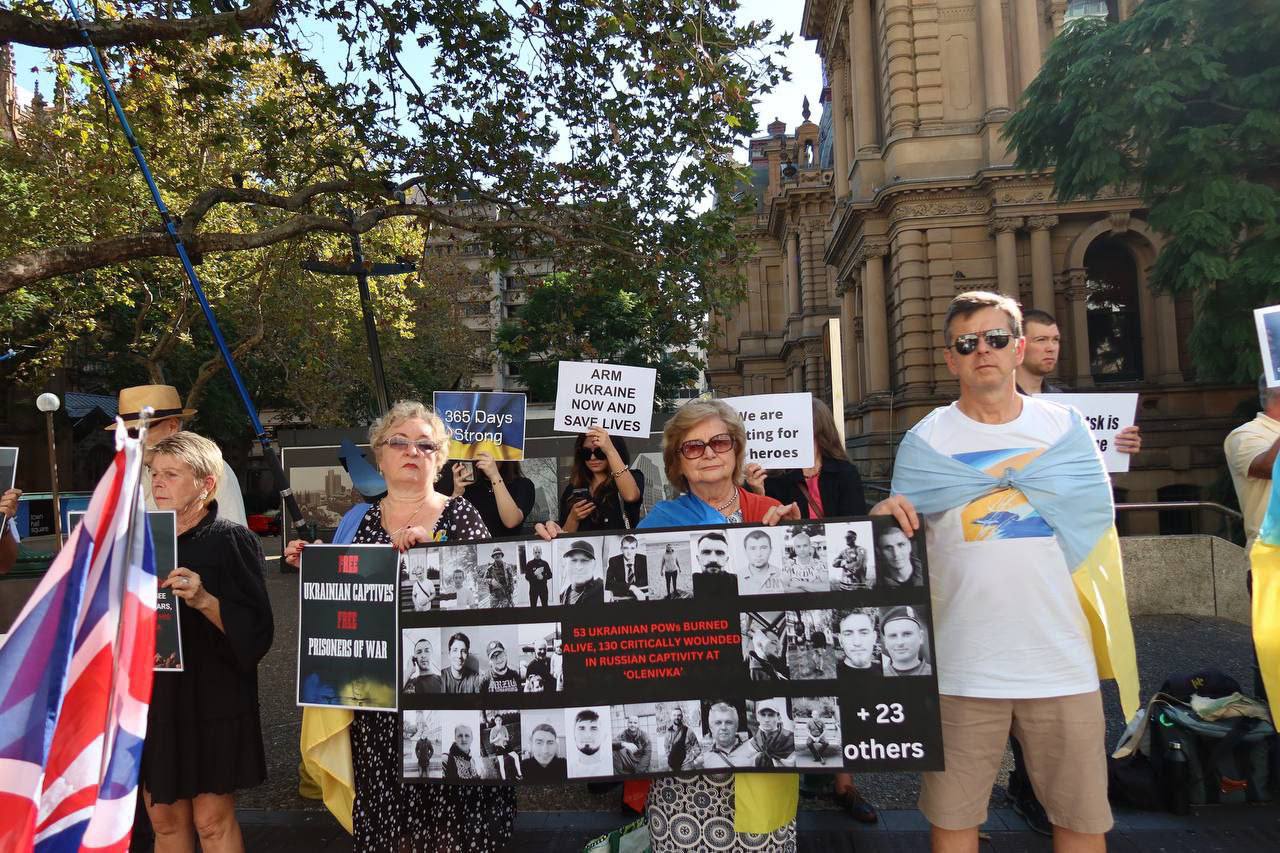
Photo from the rally in Sydney, dedicated to the terrorist attack in Olenivka and prisoners of war. Photo: Ukrainians in Sydney
The families of defenders wounded during the terrorist attack in Olenivka have almost no information since the Russians committed this war crime. The norms of the Third Geneva Convention on the Treatment of Prisoners of War are systematically violated, so Ukraine shouldn't expect Russia to willingly return Azovstal defenders home.
NGO's representatives try to keep the topic of prisoners of war defenders of Mariupol and the terrorist attack in Olenivka relevant, both in Ukraine and abroad. However, this is not enough without the state support.
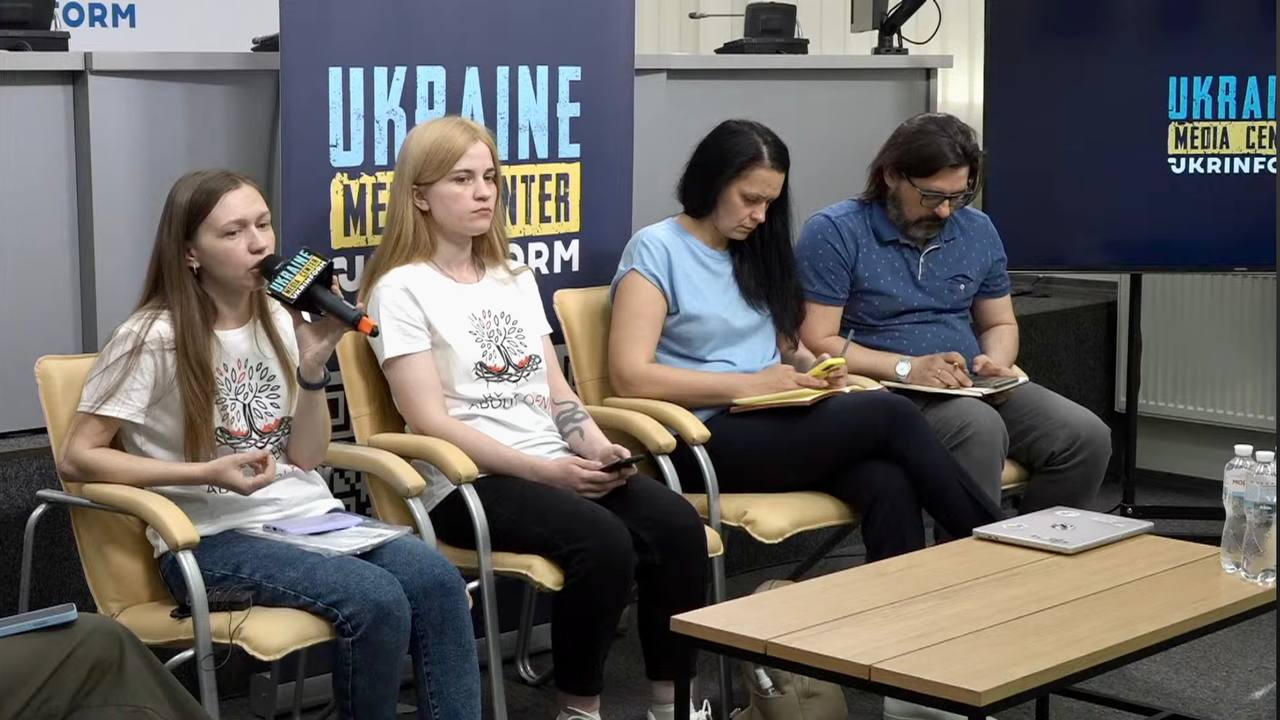
Representatives of Olenivka Community, Mariia Alekseevych, and Hanna Lobova, together with representatives of the Media Initiative for Human Rights (MIHR), at a briefing on May 6, 2024. Photo: Ukrinform
According to human rights defenders, about 10,000 military personnel are in Russian captivity, and this number only increases every year because the war continues.
"It is also worth remembering that there are still people in Russian captivity who got there even before the start of a full-scale war," says Oleksandra Mazur, a representative of Olenivka Community.
With every year of captivity, it is more and more difficult to understand how to save captured Ukrainians. At meetings with state authorities and in the public space, human rights defenders constantly emphasize that Ukraine has already agreed to mediate the exchange of prisoners of war with Turkey, Saudi Arabia, the United Arab Emirates, and Qatar. Still, these agreements have not helped return the surrendered defenders.
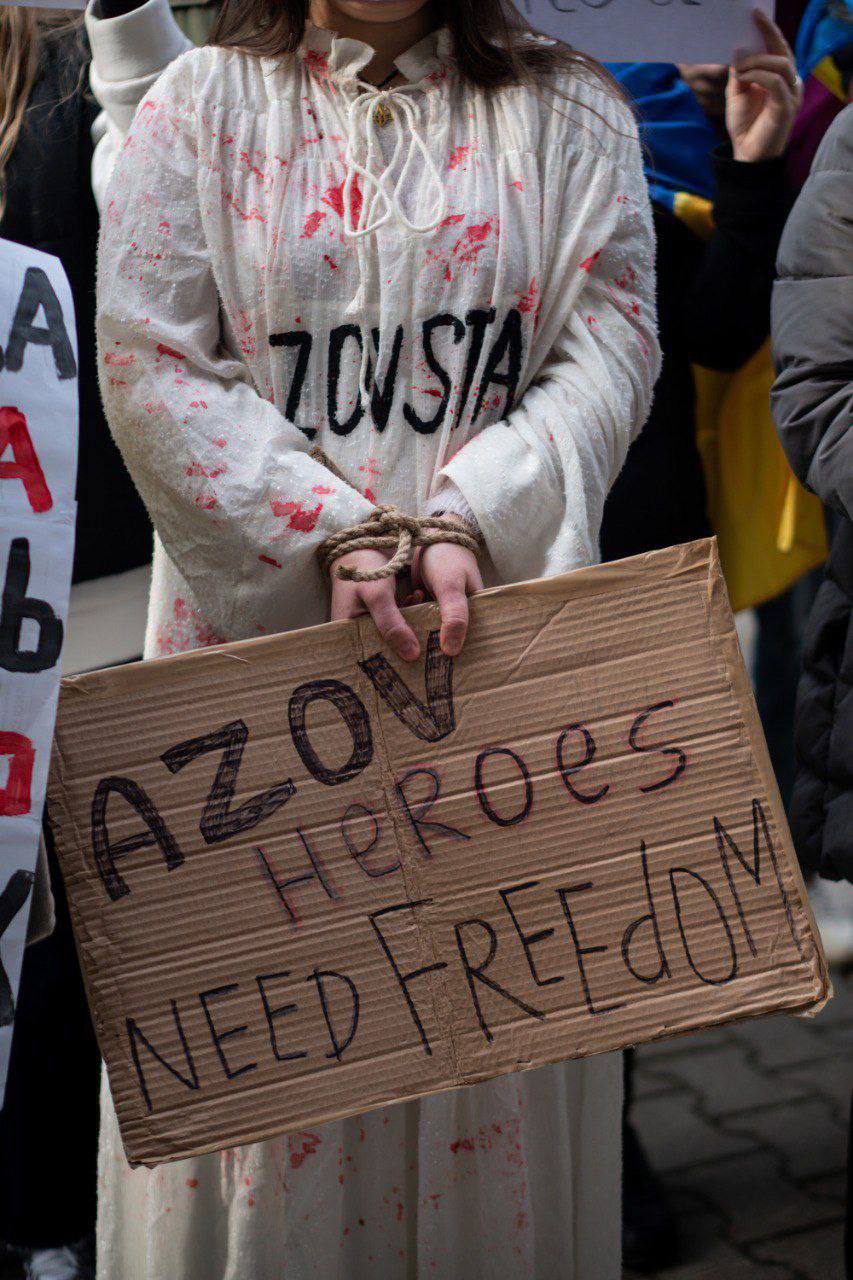
Photo from the rally in Warsaw, dedicated to the terrorist attack in Olenivka and in support of Ukrainian prisoners of war. Photo: Iryna Danyliuk























